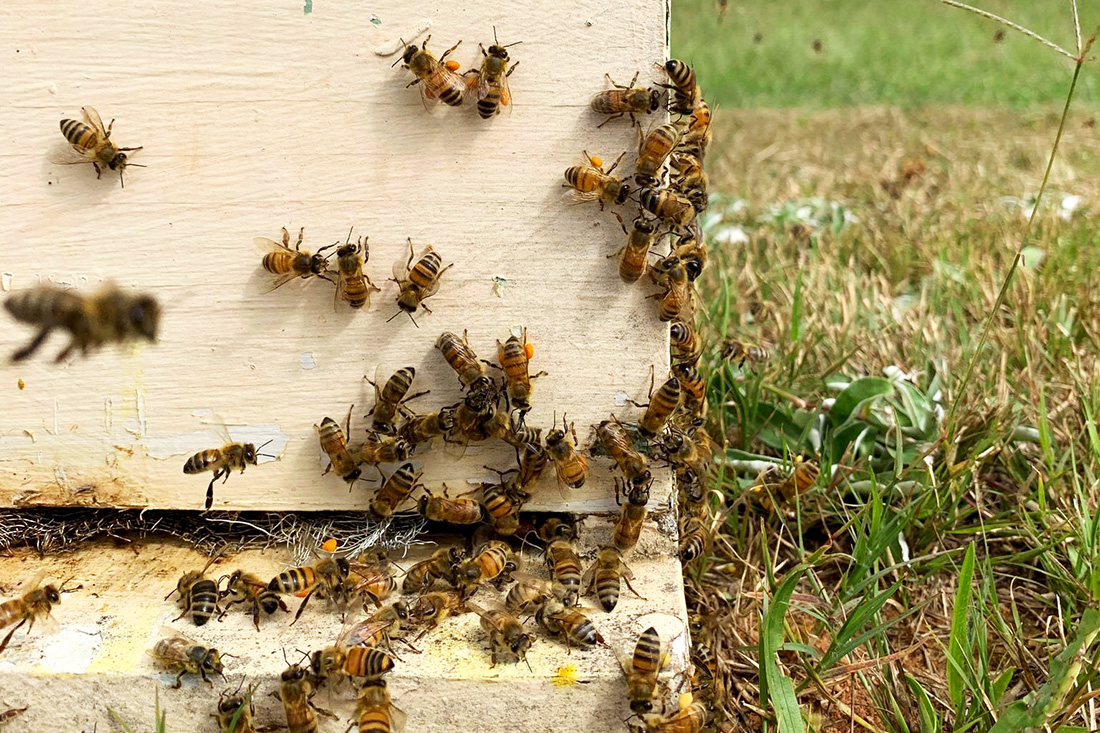New technology is often met with resistance, especially when it concerns the food supply. University of Georgia experts say biotechnology is proving to be no exception.
Consumers Leery
"The biotech companies haven't done a good job of consumer education. And some people think that means they have something to hide," said Paul Guillebeau, pesticide coordinator for the UGA College of Agricultural and Environmental Sciences.
"Consumers have been duped by unsafe products in the past, intentionally and unintentionally," he said. "Now, they're more suspicious of new technology, especially when the companies seem to be saying, 'Just trust us. Nothing will go wrong. You don't need to know what foods carry bioengineered components.'"
Guillebeau noted that biotechnology is a broad field. "It encompasses agriculture, medicine, animals, nutrition and more," he said. "Some areas will undoubtedly yield tremendous benefits. Others may carry substantial risk."
Europeans Skeptical, Americans Confident
That threat of risk is raising a ruckus.
"In some parts of the world, there is great consumer resistance and cynicism toward biotechnology," said U.S. Secretary of Agriculture Dan Glickman. "In Europe, protesters have torn up test plots of biotech crops. Some of the major food companies in Europe have stopped using genetically modified organisms in their products."
So far, consumer confidence in the United States has remained high.
"By and large, Americans trust the food safety efforts of (government agencies) because these agencies are competent and independent from the industries they regulate," Glickman said. "That kind of independence and confidence will be required as we deal with biotechnology."
Helping Feed the Planet
Biotechnology can help greatly in the fight against hunger. "Genetically modified plants have the potential," he said, "to overcome problems that are starving people in the developing world."
It can help the environment, too. "It could reduce pesticide use, increase yields, improve nutritional content and use less water," he said.
Research Reveals Pros and Cons
Guillebeau pointed to a USDA lab study of pollen from Bt corn.
The Bacillus thuringiensis genes added to the corn, he
said, "encode a protein toxic to an important corn pest.
But the study showed the pollen could also kill monarch
butterflies."
It isn't a simple matter. "The Bt corn," he noted, "is replacing some broad-spectrum insecticides that would also kill nontarget insects and animals," he said.
"I think people are primarily upset because these results seemed to be a surprise," he said. "Either the company didn't know or they didn't publicize these kinds of potential effects. Either case makes consumers uneasy."
Future Shows Promise
Glickman said he has no doubt problems will arise. But the future has great promise, too.
"Science will march forward," he said. "And in agriculture, that science can help create a world where no one needs to go hungry, where developing nations can become more food self-sufficient and thereby become freer and more democratic."
Clean water and air, global warming and climate change are challenges, too. "These must be met with sound and modern science," he said. "And that will involve biotechnological solutions."
With huge fortunes at stake, Guillebeau said, biotech companies will face great pressure to bring new products to the market fast. But the shorter the review period, the more likely something risky will slip through.
"Bottom line," he said, "biotech is a powerful new science that will affect all aspects of human life. We would be foolish to ignore the tremendous benefits it offers."
However, powerful tools can carry high risks, too. "We would be equally foolish," he said, "to look at this new world through only rose-colored glasses."
(Monarch butterfly photo courtesy Iowa State University.)






